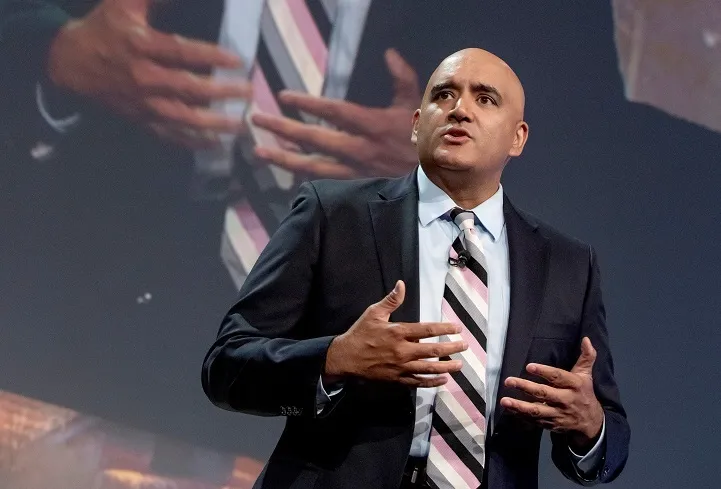
ITS America president & CEO Shailen Bhatt has dismissed the Federal Communications Commission (FCC)'s 'reckless' plans for the 5.9 GHz safety spectrum.
FCC chairman Ajit Pai announced that draft new rules for the 5.9 GHz band "would make new spectrum available for unlicensed services such as WiFi and finally fulfill the band’s decades-old promise of improving automotive safety".
FCC also wants to give up on what it calls "long-stalled" dedicated short-range communications (DSRC) technology in favour of cellular Vehicle to Everything (C-V2X).
“5.9 GHz spectrum has lain fallow for far too long," Pai insisted.
"For the last two decades, the American people have waited for this prime mid-band spectrum to be put to use, and the time for waiting is over."
But Bhatt strongly disagrees: "ITS America has warned that reallocating the majority of the 5.9 GHz band without fully considering the effects on public safety is reckless."
He suggests that FCC is ignoring transportation safety advice from the US Department of Transportation and state DoTs, as well as a raft of transport and safety organisations.
"While we appreciate the need to allow C-V2X in the band, it is extremely shortsighted and detrimental to the millions of people who travel on US roads every day for the FCC to reallocate 45 MHz of spectrum from transportation safety to unlicensed devices such as WiFi," Bhatt adds.
ITS America will "pursue all available avenues to protect public safety in communities across the country by preventing such action", Bhatt concludes.
FCC says making part of the band available for WiFi is "critical to meeting America’s growing connectivity needs".
It adds that it will also help improve and expand broadband access in rural America.
FCC's statement continues: "While 5.9 GHz band spectrum has been designated for DSRC for over 20 years, deployment has been painfully slow, and as a result, DSRC has done virtually nothing to improve automotive safety."
"By contrast, C-V2X, is a newer technology that shows great promise, which is why automakers here and around the globe are turning the page on DSRC and moving to implement C-V2X."
FCC will vote on these new rules at its 18 November meeting.









